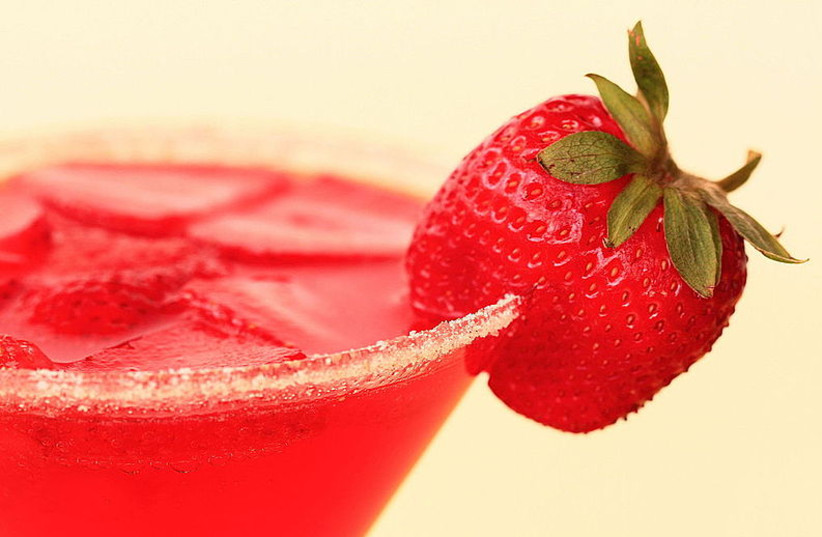A year ago, the Netanyahu government - coming under pressure from the Haredi (Jewish ultra-Orthodox) community - canceled the tax on sugared beverages because of their popularity among them - ignoring the proven dangerous repercussions on health.
The tax, set down by a previous government following enthusiastic recommendations by Health Ministry experts, significantly lowered the general population's purchase and consumption of such drinks and haredim.
Medical research has already found that consuming too much sugar – including the amount in soft drinks - and artificially sweetened beverages (ASBs) seriously raises the risk of heart disease, obesity, hypertension, type-2 diabetes, kidney disease, tooth decay, non-alcoholic liver diseases, gout (a kind of arthritis), joint pain, acne, and inflammation. Now, there is another danger.
Drinking sugar, or ASBs, has now been linked with a higher risk for irregular heart rhythms known as atrial fibrillation (AFib). The Chinese researchers published their study in the journal Circulation: Arrhythmia and Electrophysiology (a peer-reviewed journal of the American Heart Association—AHA) under the title “Sweetened Beverages, Genetic Susceptibility, and Incident Atrial Fibrillation: A Prospective Cohort Study.”
An analysis of health data in the UK Biobank found a 20% higher risk of AFib among people who said they drank two liters or more per week (about 67 ounces) of artificially sweetened drinks. The risk was 10% higher among people who said they drank similar amounts of sugar-sweetened beverages.

Data shows a link between drinking over 2 liters a week and higher risk of cardiac issues
Adults who reported drinking two liters or more of drinks sweetened with sugar or ASBs per week had a higher risk of an irregular heart rhythm compared with adults who drank fewer such beverages.
AFib increases the risk of stroke by five-fold. More than 12 million Americans are expected to have AFib by 2030, according to the American Heart Association’s 2024 Heart Disease and Stroke Statistics.
“Our study’s findings can’t definitively conclude that one beverage poses more health risk than another due to the complexity of our diets and because some people may drink more than one type of beverage,” said lead study author Dr. Ningjian Wang, a researcher at the Shanghai Ninth People’s Hospital and Shanghai Jiao Tong University School of Medicine. “However, based on these findings, we recommend that people reduce or even avoid artificially sweetened and sugar-sweetened beverages whenever possible. Do not take it for granted that drinking low-sugar and low-calorie artificially sweetened beverages is healthful because they too can pose potential health risks.”
Researchers reviewed data from dietary questionnaires and genetic data for more than 200,000 adults free of AFib when they enrolled in the UK Biobank between 2006 and 2010. During the nearly 10-year follow-up period, there were 9,362 cases of AFib among the study participants.
Participants who consumed more artificially sweetened beverages were more likely to be female, younger, have a higher body mass index, and a higher prevalence of type-2 diabetes. Those who consumed more sugar-sweetened beverages were more likely to be male, younger, have a higher body mass index, a higher prevalence of heart disease, and lower socioeconomic status.
Additional commentary
American Heart Association nutrition committee member Penny M. Kris-Etherton, PhD, RD, FAHA, said these findings on artificially sweetened beverages are surprising “given that two liters of artificially sweetened beverages a week is equivalent to about one 12-ounce diet soda a day.”
Penn State University nutritional sciences emeritus Prof. Penny Kris-Etherton, who was a co-author of the association’s science advisory on artificial sweeteners, commented that “this is the first study to report an association between no- and low-calorie sweeteners and also sugar-sweetened beverages and increased risk of AFib. While there is robust evidence about the adverse effects of sugar-sweetened beverages and cardiovascular disease risk, there is less evidence about the adverse health consequences of artificial sweeteners.
“We still need more research on these beverages to confirm these findings and to fully understand all the health consequences of heart disease and other health conditions,” she concluded. “In the meantime, water is the best choice, and, based on this study, no- and low-calorie sweetened beverages should be limited or avoided”
